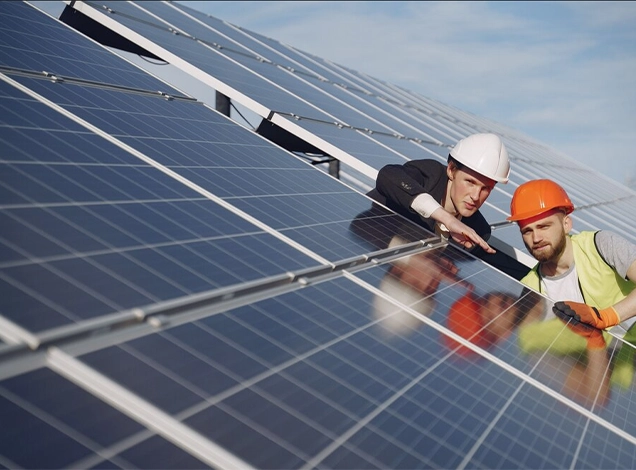Solar power generator systems are increasingly being adopted as clean, reliable alternatives to traditional fuel-based generators. They capture sunlight through photovoltaic panels and convert it into electricity, which is then stored in batteries for later use. These systems are commonly used in off-grid cabins, recreational vehicles, remote construction sites, and emergency backup scenarios. As solar technology advances, these generators are becoming more compact, efficient, and accessible for everyday users.
Solar power generator efficiency and usability have significantly improved over the past decade, making them suitable for a wide range of applications. Depending on the system’s size and battery storage capacity, they can power everything from small electronic devices to essential household appliances during power outages. Many models now come equipped with smart inverters, multiple charging ports, and solar tracking features that increase energy conversion. Additionally, their silent operation and zero-emission design make them ideal for environmentally sensitive areas. For outdoor enthusiasts, they offer energy independence in remote locations, while for homeowners, they provide peace of mind during blackouts.
Solar Power Generator for Home
Solar power generator for home systems are designed to provide reliable backup electricity or even completely power a household depending on energy demands and system size. These generators use solar panels to capture sunlight, inverters to convert DC to AC, and batteries to store excess energy for use during night or outages. As energy costs rise, homeowners are turning to solar generators as a long-term, cost-saving and eco-friendly solution.
When evaluating a solar generator for home use, several key factors should be considered:
- Power output capacity, usually measured in watts or kilowatts
- Battery storage size, which determines how long power can be supplied
- Inverter type and quality, impacting performance and safety
- Installation and maintenance costs
- Integration with existing home electrical systems
- Warranty and manufacturer support
By understanding these aspects, homeowners can choose a system that meets both current and future energy needs. In regions with frequent outages, solar power generators also add energy security and peace of mind.

Best Solar Power Generator for Home
Best solar power generator for home use depends largely on household size and daily energy consumption. Larger systems with lithium-ion batteries and pure sine wave inverters are often preferred due to their stability and output.
Power generator for home setups often feature smart connectivity, allowing users to monitor energy production and consumption in real time through mobile apps. Best solar power generator scenarios also include hybrid systems that can switch between solar and grid power automatically, ensuring seamless energy supply even in unpredictable weather conditions.
Solar Power Generator for Camping
Solar power generator for camping is a compact and portable energy solution for outdoor adventures. Whether for lighting, charging phones, or powering a small fridge, solar generators offer clean and silent power away from the grid. Their portability and ease of use make them an essential camping tool.
When preparing for an outdoor trip, consider the following:
- Weight and size, to ensure easy transport and setup
- Charging options, including solar, wall, and car charging
- Battery life and output, to match your power needs
- Durability, especially weather-resistant casing
- Port compatibility, such as USB, DC, and AC outlets
Solar power generator for camping options continue to improve, offering longer battery life, faster charging, and enhanced portability. They eliminate the need for noisy fuel-based generators and contribute to a cleaner camping experience.

Small Solar Power Generator
Small solar power generator models are designed for light-duty tasks like phone charging, LED lighting, and powering small fans or radios.
Small generator units are often lightweight and come with built-in handles, making them ideal for quick weekend trips or emergency kits. Small solar generator designs prioritize simplicity, plug-and-play functionality with minimal maintenance, perfect for beginners or low-energy needs.
Solar Power Generators Portable
Solar power generators portable solutions are built for flexibility, convenience, and mobile lifestyles. From tailgating to fieldwork, these systems offer instant power without relying on fossil fuels. Their increasing popularity is driven by technological advances in battery efficiency and panel design.
To choose the right unit, look at:
- Wattage range, to ensure it powers your intended devices
- Foldable or detachable solar panels, for ease of setup and transport
- Fast-charging capability, especially in limited daylight
- Battery type, with lithium batteries offering better lifespan
- Multiple output ports, for charging several devices simultaneously
Solar power generators portable models empower users to stay connected, powered, and independent wherever they go, whether for recreation, work, or emergency preparedness.
These generators are also an excellent eco-friendly alternative, significantly reducing carbon footprints compared to traditional fuel-based systems. As climate-conscious choices gain traction, more consumers are investing in solar power generators portable enough to support everything from camping trips to disaster relief scenarios. Their silent operation and zero emissions make them ideal for use in remote areas, nature reserves, or noise-sensitive environments.
Frequently Asked Questions (FAQ)
Yes, but with limitations. A high-capacity solar generator can power essential devices in a home, such as lights, Wi-Fi routers, and small appliances, during outages. However, to run an entire household continuously, especially with HVAC systems, you’d need a large-scale solar energy system with ample battery storage.
The runtime depends on the battery capacity (measured in watt-hours) and the energy demand of connected devices. For example, with a 6000Wh battery, you could theoretically run a 3000W load for about 2 hours. Using it at lower loads will extend the runtime significantly.
A solar generator can run indefinitely as long as it receives consistent sunlight to recharge. In practice, runtime is limited by battery capacity, sunlight availability, and the efficiency of the solar panels. With proper sunlight and low power usage, it could run for several days.
Absolutely. Modern solar generators are efficient, eco-friendly, and virtually silent, making them ideal for outdoor use, emergency backup, or RV living. While they may not match the raw power output of gas generators, they require less maintenance and offer sustainable energy.
Yes, in most cases. A typical refrigerator uses 100–800 watts, so a 2000 watt solar generator can handle it easily. Just make sure the generator also has enough battery capacity to sustain it over time, especially during start-up surges.



